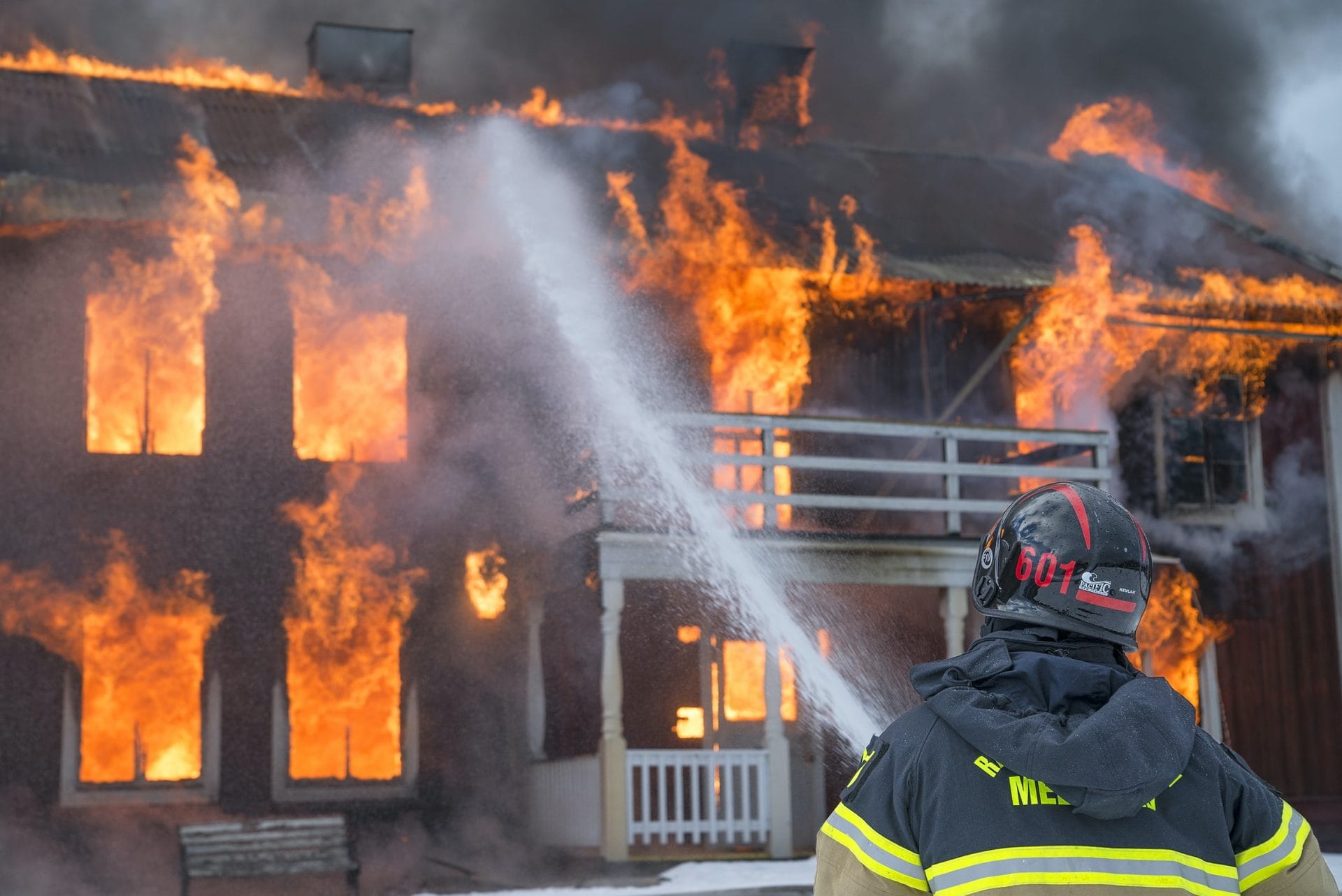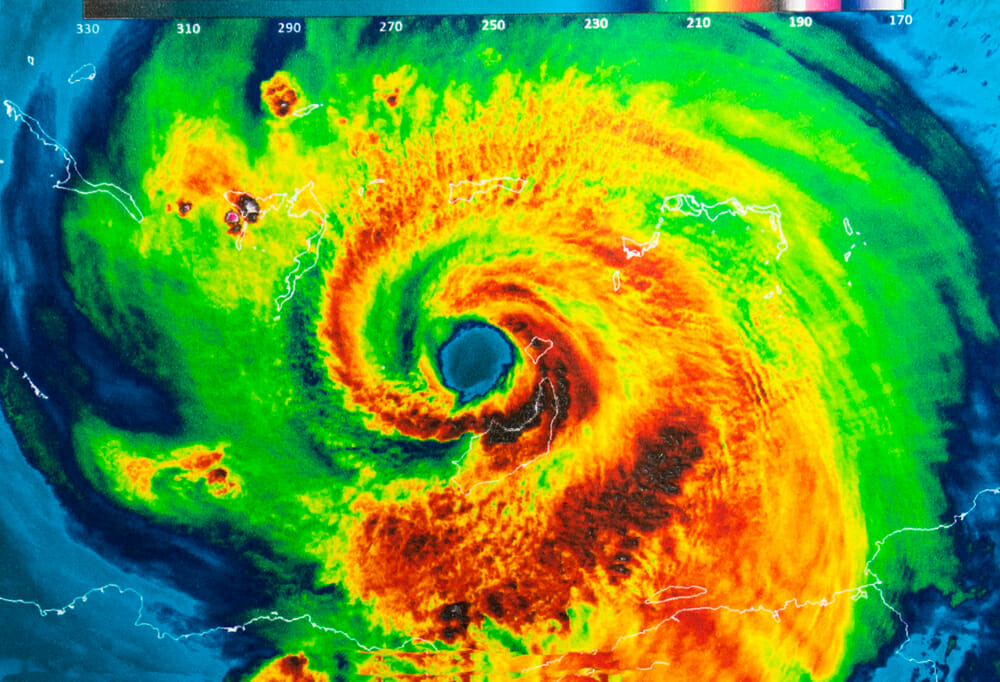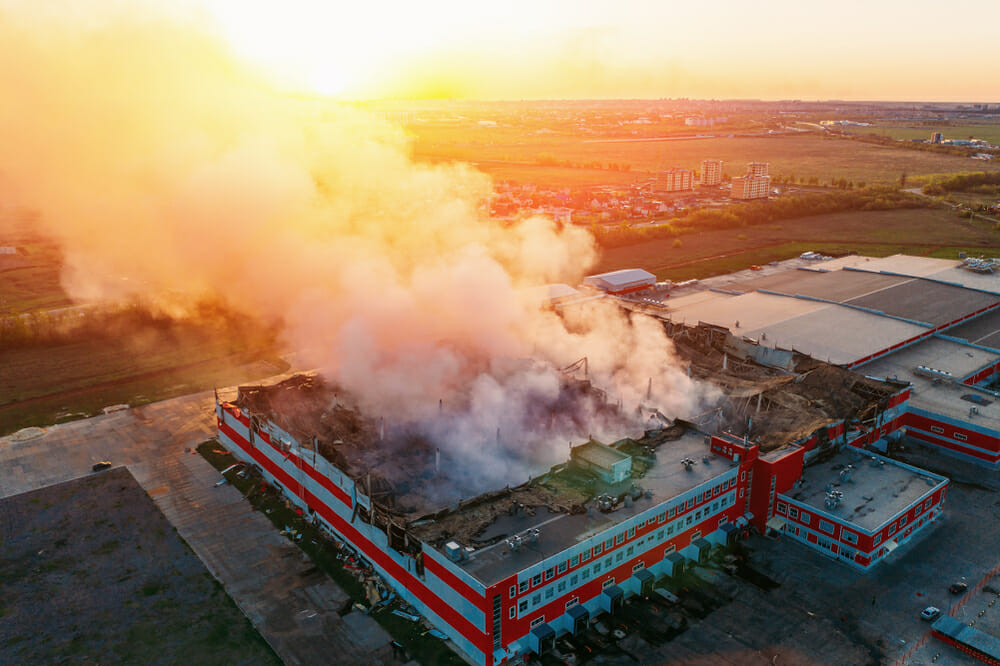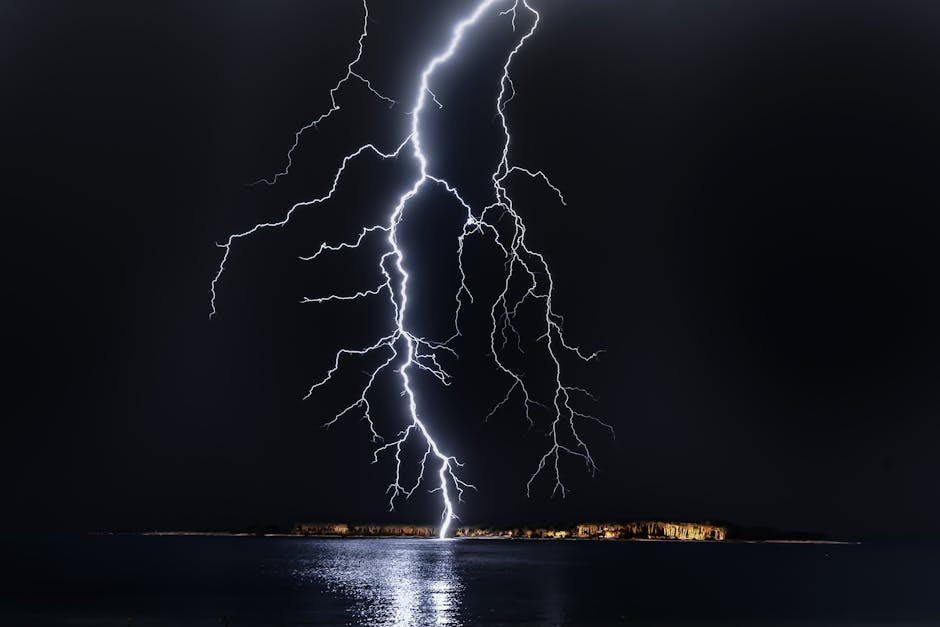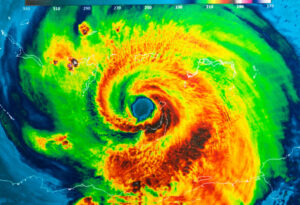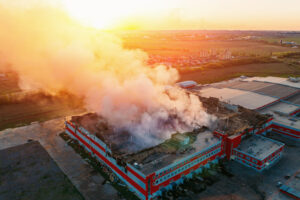Have you ever faced the nightmare of fire damage to your property and felt overwhelmed about the complex process of filing an insurance claim? Experiencing property damage is worst enough but not understanding how to file an insurance claim for fire damage can feel like pouring salt on fresh wounds. The worrying thoughts about whether you will get a fair assessment, how much you will be compensated for, or whether your claim will be denied altogether, can make it seem like the flames never really died down.
As an insured property owner, these unnecessary stresses can overshadow your initial relief when you purchased your insurance policy with the assurance of safeguarding your asset. Yet, when a fire breaks out and you’re left with damages, the realization that the claim process may be more complicated than expected begins to set in. How do you ensure you successfully navigate this process without being short-changed?
At Insurance Claim Recovery Support, we understand these frustrations and complexities associated with fire insurance claims. This is why we’re dedicated to helping you understand the processes involved, such that you can confidently file your fire damage insurance claim knowing fully well you’ve done everything correctly. This step-by-step guide is intentionally designed to ensure you’re well-informed and confident in your ability to handle such situations.

Here’s a simple, bite-sized breakdown for a quick preview:
- Understand Your Insurance Coverage: Knowing in detail what your policy covers is the first step in filing a claim.
- Immediate Post-Fire Actions: You need to take these steps right after the fire to ensure your insurance claim process runs smoothly.
- Document the Damage: Detailed documentation is crucial when you’re preparing to file a claim.
- File the Claim: We’ll guide you through how to confidently file that crucial claim for fire damage.
- Deal with Potential Disputes or Denials: Unfortunately, not all claims get approved immediately or approved at all. We’ll guide you on what to do if you find yourself in such a situation.
As we go through these steps, you can expect clarity and your burden to lessen as we take you through your journey to recovery.
Understanding Your Insurance Coverage
To navigate the process of how to file an insurance claim for fire damage efficiently, the first step involves a thorough understanding of your insurance coverage.
What is Covered by Fire Damage Insurance?
Most homeowners’ insurance policies cover fires. This coverage includes not only the actual house but also extends to other structures on your property such as sheds or detached garages. The personal belongings inside your home that may have been damaged or destroyed by the fire are also covered.
In many cases, your policy will also cover costs related to fire damage such as the expense of living elsewhere while your home is being repaired, and fees for cleaning smoke and ash. This is often referred to as loss of use or additional living expenses coverage. It’s essential to review your policy carefully or consult with your insurance adjuster to understand what is covered and what isn’t.
Understanding Coverage Limits and Deductibles
It’s equally important to understand the limits of your coverage and the amounts of your deductibles. Coverage limits are the maximum amounts your insurance company will pay for each type of covered loss. Your deductibles are the amounts you’ll need to pay out of pocket before your coverage kicks in.
For instance, if you’ve sustained a home fire, knowing the policy maximums and deductibles of coverages A, C and D of your homeowners insurance policy will be a crucial part of the process. Coverage A refers to dwelling coverage, Coverage C refers to personal property, and Coverage D refers to loss of use.
Special Insurance Claim Issues for Partially Damaged Homes
If your home was partially damaged by a fire, you may encounter certain unique claim issues. These are often called “partial losses” because the home has only been partially destroyed. For such cases, you’ll need to watch out for hidden damage issues, such as water, smoke, ash, mold, air quality, and duct damage.
Additionally, disputes over “matching” and line of sight can arise. Repairs should return your property to a “uniform and consistent appearance” even if that means replacing undamaged items such as roof tiles or carpeting.
Understanding your insurance coverage is the first step towards a successful claim process. At Insurance Claim Recovery Support, we stand ready to help you navigate these complexities, ensuring that you understand your coverage, and receive a fair and prompt settlement.
Immediate Steps to Take After a Fire
If your property has been affected by a fire, it’s critical to take immediate steps to secure it and prevent further damage. This can be a challenging time, but it’s essential to act quickly and decisively. At Insurance Claim Recovery Support, we can guide you through this process.
Securing the Property to Prevent Additional Damage or Theft
One of the first steps you should take after a fire is to secure your property. This is typically a requirement under most homeowners’ insurance policies. Securing the property may involve calling the fire department and then taking measures to board up windows or fence off the area to keep out vandals and squatters. It’s vital to ensure your safety and not risk your life while securing your property.
Mitigating Further Damage
In addition to securing your property, it’s also crucial to mitigate any further damage that could occur after the fire. This means taking steps to prevent additional harm to your property. For example, if there’s water damage from firefighting efforts, it may be necessary to dry out the affected areas to prevent mold growth.
Asking for an Advance on the Claim
In the aftermath of a fire, you may find yourself in immediate need of essentials such as clothing, food, and medicine. It’s common practice to request an advance on your insurance payout to cover these immediate expenses. This request should be made in writing and sent directly to your insurance company. Keep in mind, any advance you receive will be subtracted from your final insurance payout.
Taking these immediate steps after a fire can help secure your property, mitigate further damage, and provide you with necessary funds to cover immediate needs. At Insurance Claim Recovery Support, we understand the challenges that come with experiencing a fire, and we’re here to help you navigate the complexities of how to file an insurance claim for fire damage.

Documenting the Damage
One of the most crucial steps in understanding how to file an insurance claim for fire damage is documenting the damage to your property. This step involves a thorough inspection of your property and should ideally be done immediately after the fire department leaves your property.
Importance of Taking Photographs and Videos
Taking photographs and videos of the damage can provide solid evidence for your claim. Capture the extent of the damage throughout your property by including as many details as possible. Images and footage can serve as undeniable proof, which can make it easier for your claim to be accepted. However, remember to prioritize safety. If your home is unstable after the fire, document as much as you can without putting yourself at risk.
Documenting Hidden Damages: Water, Smoke, Ash, Mold, and Air Quality
Fire damage often extends beyond what is immediately visible. Water used to extinguish the fire can lead to water damage and mold growth, while smoke, ash, and soot can cause further damage to your property. A professional can help identify these hidden damages. At Insurance Claim Recovery Support, we encourage property owners to consult with professionals who can help identify and document such damages in detail.
Documenting Damaged or Destroyed Items
Beyond your property, it’s also important to document personal belongings that have been damaged or destroyed in the fire. Create an inventory of these items, noting their condition before and after the fire. Again, ensure you capture this information in photographs or videos. It’s also crucial to remember not to discard any items, no matter how damaged they seem. Fire damage restoration professionals can often restore severely damaged items.
Documenting the damage thoroughly is a crucial part of filing an insurance claim for fire damage. At Insurance Claim Recovery Support, we understand that this can be a challenging task, especially when dealing with the aftermath of a fire. We’re here to help guide you through the process and ensure that you receive the fair and prompt settlement you deserve.
Filing the Insurance Claim
After documenting the damage caused by the fire, the next step in knowing how to file an insurance claim for fire damage is starting the claim process.
How to File a Claim for Fire Damage
At Insurance Claim Recovery Support, we recommend filing a claim as soon as possible after the incident. Quickly filing means you’ll receive your claim payment sooner, there’s less room for additional damage to occur, and you can return to normality more rapidly.
To file a claim, contact your insurance provider and inform them about the incident. You’ll need to provide details about the fire, including when it occurred, the extent of the damage, and any injuries. Ensure to have your police report or FIR (if applicable) and photographs of the damage at hand.
Meeting with the Insurance Adjuster
After filing the claim, your insurance company will send an adjuster to evaluate the damage. It’s crucial to be present during this assessment. You’re familiar with your property, and you can guide them through the damaged areas they might not notice. Remember to document everything discussed during this meeting.
What Not to Say to Home Insurance Adjuster
Interactions with the insurance adjuster are critical to your claim process. While it’s essential to be cooperative and provide necessary information, some statements can potentially harm your claim. Avoid admitting fault, discussing injuries, circumstances of the incident, allowing recorded statements, or agreeing to a settlement offer prematurely.
Dealing with Delays in Processing Claims
Processing a fire insurance claim can sometimes take longer than expected. If you experience delays, maintain regular contact with your insurer and keep a record of all communications. If the delay becomes unreasonable, consider seeking assistance from a public adjuster, like the ones at Insurance Claim Recovery Support, to expedite the process.
Patience is key when dealing with insurance claims. It’s our mission at Insurance Claim Recovery Support to ensure that your claim is handled fairly and promptly, helping you recover from the fire incident and move forward as quickly as possible.
Repairing and Rebuilding Your Home
After filing your insurance claim for fire damage, the next phase involves repairing and rebuilding your home. This process can be complex, but with the right guidance, it’s manageable.
Getting Multiple Repair Estimates
To ensure you get a fair and comprehensive repair estimate, it’s advisable to get quotes from multiple contractors. This will provide a range of possible costs, allowing you to make an informed decision and negotiate effectively with your insurance company. Remember to choose contractors who specialize in fire damage restoration, as they will have the necessary knowledge and experience to handle your unique situation.
Understanding “Matching” and Line of Sight in Repairs
You’re entitled to a consistent and uniform look for your home after repairs, according to most state laws and insurance policies. This principle is referred to as “matching.” So, if only a part of your home was damaged by the fire, your insurance company should cover the costs of matching the new materials with the old ones, to maintain consistency in appearance. If your insurer won’t pay to match paint colors, roof tile materials, or any other visible materials, check your policy for any clear and unambiguous exclusions, and consult with a professional, such as us at Insurance Claim Recovery Support, to ensure your rights are protected.
Dealing with Inadequate or Improper Cleaning and Repair Methods
After a fire, it’s crucial to ensure that your home is thoroughly cleaned. This process should eliminate all soot, smoke, and potentially harmful substances that could cause health issues or further damage to your property. Your insurer may tell you that a simple wipe-down is sufficient, but this is often not the case. Professional cleaning and drying methods are necessary to prevent mold growth and other long-term problems. If your insurer refuses to pay for thorough cleaning and drying, resulting in mold or other issues, the entire damage may be covered, despite any mold exclusions in your policy (source).
At Insurance Claim Recovery Support, we understand how to file an insurance claim for fire damage and the complexities that come with it. We’re here to assist you every step of the way, ensuring you get the fair and prompt settlement you deserve, and that your home is repaired and restored to its pre-loss condition.
Hiring Professionals to Help with Your Claim
When dealing with fire damage, it’s crucial to have a team of experts on your side. Navigating the insurance claims process can be overwhelming, especially when you’re already dealing with the emotional aftermath of a fire.
The Role of Public Adjusters in Fire Damage Claims
A public adjuster can be a game-changer when it comes to filing a fire damage claim. They are licensed professionals who work exclusively for policyholders, not insurance companies.
Public adjusters interact directly with your insurance company, ensuring that you receive a fair and timely settlement. They handle all the tedious details of submitting a fire insurance claim, allowing you to focus on your family and daily life.
At Insurance Claim Recovery Support, we’re dedicated to representing your interests throughout the claim process. Our public adjusters document, negotiate, and settle your insurance claim fairly and promptly. We aim to get you the maximum settlement, in minimum time.
Hiring Licensed, Experienced Professionals to Inspect the Damage
Fire damage can extend beyond what is immediately visible. The heat can cause damage to the structural integrity of your home, and smoke can seep into hidden areas, causing further damage over time. Therefore, it’s essential to hire licensed, experienced professionals to inspect the damage.
These experts will inspect both visible and hidden areas of your home, ensuring that all damages are documented. This thorough documentation is crucial to filing a comprehensive claim that accurately represents the extent of the damage to your home.
Your insurance company will have their own experts working for them, so it’s only fair that you should too. By hiring a public adjuster and a team of professionals to inspect the damage, you can ensure that your interests are adequately represented, and that you get the settlement you deserve.
If you’re unsure about how to file an insurance claim for fire damage, or if you’re overwhelmed by the process, don’t hesitate to reach out to us at Insurance Claim Recovery Support. We’re here to help you navigate the complexities of the claims process, ensuring that you receive a fair and prompt settlement.
Dealing with Disputes and Denials
In the process of filing an insurance claim for fire damage, you may encounter denials or disputes from your insurance company. Understanding the reasons for these denials and knowing how to effectively handle disputes can make a significant difference in the outcome of your claim.
Common Reasons Insurance Companies Deny Fire Claims
Insurance companies can deny fire claims for various reasons. These can include failure to notify the insurance company promptly, not adequately documenting the damage, or discrepancies in the insurance policy terms. If your claim is denied, the first step is to review your insurance policy and the reasons given for the denial. This will help you understand why your claim was not approved. If you need more clarification, you should contact the insurance company and ask for a further explanation. However, remember that insurance companies are obliged by law to act in good faith and fair dealing when processing claims. If you feel your claim was unfairly denied, you may have grounds to take legal action against the insurance company for bad faith or breach of contract.
Disputes Over Cleaning Versus Replacing Items
Disputes often arise over whether items exposed to smoke and fire should be cleaned or replaced. For instance, your insurance adjuster may insist that cleaning your smoke-damaged drapes is sufficient, while a professional cleaner may advise that there’s no point in cleaning them and they should be replaced. If you end up replacing the drapes because they couldn’t be adequately cleaned, your insurance company should reimburse you. On the other hand, if a reputable cleaner does a good job and the drapes are restored to their original state, cleaning can be acceptable and appropriate.
How to Deal with Insurance Adjuster After a House Fire
Dealing with an insurance adjuster after a house fire can be challenging. It’s essential to remember that the adjuster works for the insurance company and has their best interests at heart. Always be courteous and cooperative when communicating with your adjuster, but don’t feel obligated to accept an offer that you don’t agree with. Document every communication you have with your adjuster and never embellish or exaggerate the nature of the destruction. If you feel that you’re being treated unfairly, reach out to an attorney or a public adjuster like us at Insurance Claim Recovery Support for guidance and assistance.
Understanding how to navigate disputes and denials is crucial in the process of filing an insurance claim for fire damage. At Insurance Claim Recovery Support, we’re dedicated to helping you through this challenging time and ensuring you receive the settlement you deserve.
Conclusion
The Importance of Being Prepared and Having a Plan
Knowing how to file an insurance claim for fire damage is just the first step in the process. It’s equally important to be prepared and have a plan in place. This means understanding the specifics of your insurance coverage, documenting your losses thoroughly, and being ready to dispute any denials or underpayments from your insurance company. The more organized and prepared you are, the smoother the claim process will be.
How Insurance Claim Recovery Support LLC Can Help
At Insurance Claim Recovery Support, we understand that dealing with fire damage can be overwhelming. That’s why we’re here to help you every step of the way. We’re experienced in handling fire damage claims and we work exclusively on your behalf to ensure that you receive the settlement you deserve.
As licensed Public Insurance Adjusters, we document, negotiate, and settle your insurance claim with your insurance company. We ensure that all hidden and visible damage is accounted for in your claim. Our goal is to get you the maximum settlement, in minimum time.
Moreover, we understand that the language in business interruption claims can be subjective and complex. We’re here to help you navigate through it and save you from the stress of dealing with the insurance company.
We work on a contingency basis, which means if there’s no recovery, there’s no fee. So, if you’ve suffered fire damage and need help with your insurance claim, contact us today. Let us help you get back in business!
For more information on how to navigate the insurance claim process, check out our latest property insurance news or listen to our podcast.
When it comes to filing an insurance claim for fire damage, it pays to know Insurance Claim Recovery Support.
In conclusion, understanding how to file an insurance claim for fire damage is critical for any commercial property owner. Having a plan, being prepared, and enlisting the help of professionals can make all the difference in successfully navigating the insurance claims process. At Insurance Claim Recovery Support, we’re here to support you through this challenging time and ensure you get the settlement you deserve.


